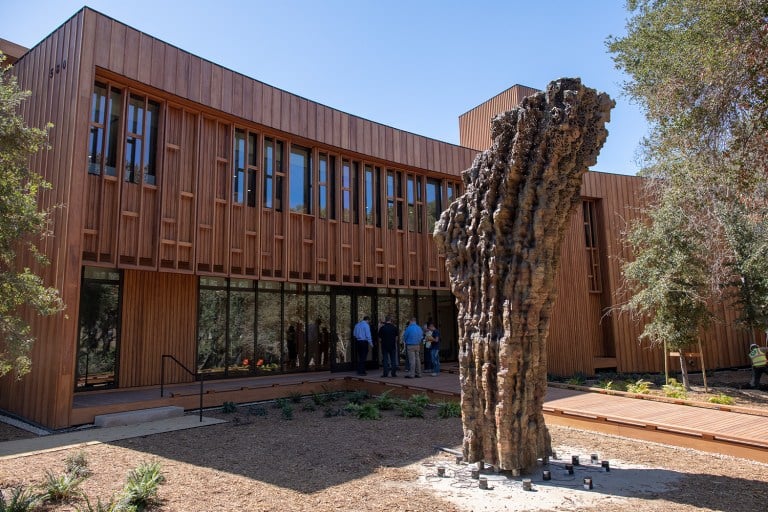The Knight-Hennessy Scholars, a multidisciplinary and multicultural graduate scholarship program, recently announced its 2023 cohort of 85 new scholars, the largest cohort to date. The scholarship program’s sixth cohort is also the first to include first-year scholars who were already enrolled as Stanford doctoral students.
The Knight-Hennessy Scholars program provides financial support for up to three years of graduate studies, according to the program’s website.
Each incoming Knight-Hennessy scholar is either a newly enrolled Stanford graduate student or a first-year Stanford Ph.D. student. The goal of the Knight-Hennessy Scholars program is to help the scholars develop a deeper level of education in their graduate studies and prepare them for leadership roles in their chosen fields. The Denning House serves as a hub for the scholars, allowing them to convene and learn together.
“The questions I’m interested in answering require knowledge of different areas and different fields and people who come from different backgrounds and who bring different perspectives,” said Isabel Gallegos B.S ’23, M.S. ’23, who will begin her doctoral studies in the fall as a Knight-Hennessy scholar studying computer science.
“I know that’s available in all different places on campus, but having a community where all that is facilitated and everyone who’s there is really passionate about their own problem they’re trying to solve — I just feel like that’s such an exciting space to be in,” Gallegos said. “I’m excited to see the different types of people who will open my mind up to different or new ways.”
One of the touted benefits of the Knight-Hennessy program is gaining a community of fellow scholars from around the world. This year’s scholars come from 29 countries. Among these, Stanford will welcome first scholars from Hungary, Malawi, the Netherlands, Russia, Sierra Leone and Turkey, reflecting the diversity of this year’s cohort.
“I’ve lived in India for 10 years and I’ve lived here for 10 years,” said Nikhil Milind, a current first-year Ph.D. student in genetics who will be joining the 2023 cohort. “I wanted to understand how I could serve my community better, and I thought that it would be beneficial to work with a community of global scholars who have experience in leadership and a broad set of contexts.”
Philip Onffroy, a first-year Ph.D. student in chemical engineering who will also be joining this year’s cohort, echoed this sentiment, saying that he is most excited about the community he will gain from being a Knight-Hennessy scholar.
“I’ve never lived for more than a month outside of the U.S.,” Onffroy said. “So I’m very excited to really get to know scholars from countries all over the world and talk really in-depth about how cultures are different.”
Becoming a Knight-Hennessey scholar starts with a written application, where applicants are asked about their work, as well as how they would connect with a global community. From there, semi-finalists are selected and they record a two-minute video teaching their fellow scholars about a topic of their choice. The final step in the application process is called “Immersion Weekend,” where the finalists are flown out and immersed in what their life as a scholar could be.
“During Immersion Weekend, I was able to meet fantastic scholars from all around the world,” Onffroy said. “I’m just very thankful to be part of this community and thankful to be trying to make a true difference with them in a variety of really important areas to change the world.”
The Knight-Hennessy Scholars program is competitive in its admissions, receiving a total of 7,119 applications this year for the 85 spots in its new cohort.
“Honestly, I was quite sure I wasn’t going to get [the scholarship],” Milind said. “It’s quite a competitive scholarship and I am super excited to be able to work with such an exciting group of people.”
